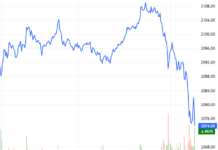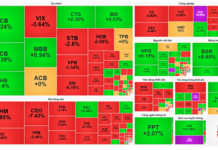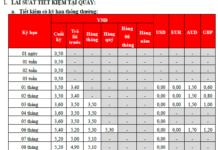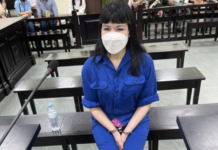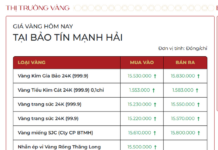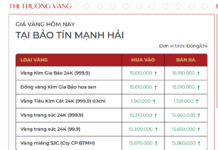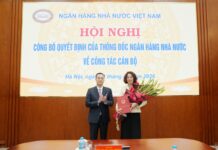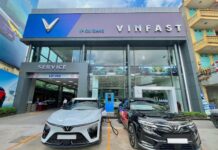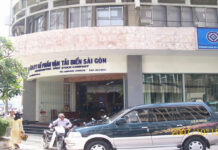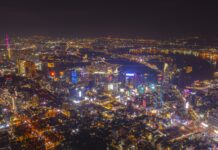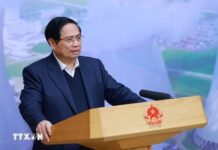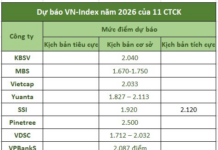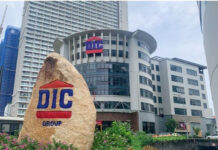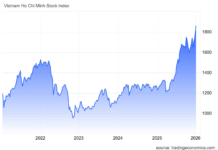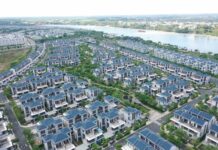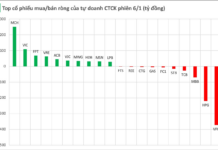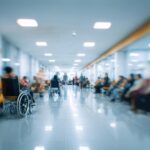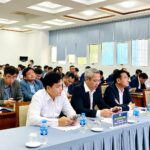Sustainable businesses, green enterprises, and Environmental, Social, and Governance (ESG) practices are now top priorities for leading companies worldwide and in Vietnam. Aligning with Vietnam’s national goal of achieving net-zero emissions by 2050, SeABank is proactively implementing measures to protect the environment and reduce emissions, closely following ESG criteria and the Green Banking framework.
The bank has identified three scopes of carbon emissions for monitoring, measurement, and control/reduction, with a particular focus on direct emissions (Scope 1) and indirect emissions from energy consumption (Scope 2). SeABank has launched a series of initiatives to minimize carbon emissions in Scopes 1 and 2, targeting: optimized energy use and pollution control, digital transformation and operational efficiency, and fostering an environmental mindset.
Optimizing Resource and Energy Use
To maximize energy efficiency, SeABank’s headquarters utilize a smart building management system that automatically monitors and adjusts air conditioning, lighting, security, and energy systems. The SeABank headquarters at BRG Tower (198 Tran Quang Khai, Hoan Kiem District, Hanoi) has earned the EDGE international green building certification, requiring a minimum 20% reduction in energy, water, and sustainable material usage. The SeABank office at 16 Lang Ha, Giang Vo District, Hanoi, meets the LEED Silver standard, a globally recognized green building certification with stringent requirements for carbon reduction, resource reuse, and optimized performance. The bank is currently implementing solutions to optimize efficiency and reduce carbon emissions, aiming for green building certification in four major strategic projects.
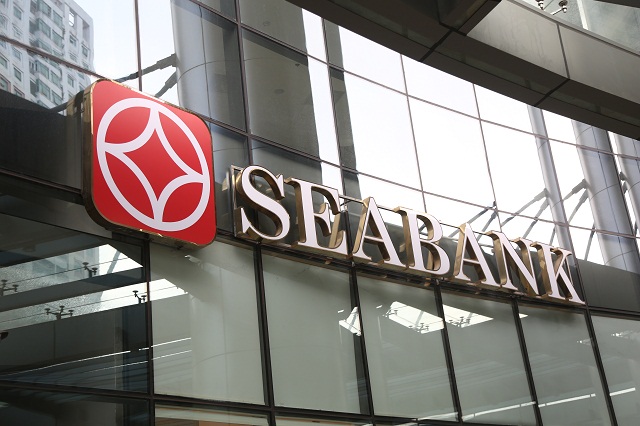
SeABank optimizes resource use and energy savings across its headquarters.
|
Electricity and water resources at SeABank’s locations are managed according to set quotas to prevent waste and detect leaks early. In 2024, average water consumption was 19 liters per person per day, 1.6 times lower than the mandated limit. For energy resources, SeABank sets consumption quotas based on regional weather conditions, with over 95% of locations meeting the 2024 targets.
Pollution control is implemented for all wastewater and waste. At permitted discharge sites managed by SeABank, wastewater is regularly monitored every three months according to QCVN 14:2008/BTNMT. In 2024, all discharge parameters remained within permissible limits. SeABank also ensures compliance with waste container standards, and waste collection and disposal are handled by licensed service providers.
The bank prioritizes eco-friendly materials and equipment, procuring devices with 4-5 star energy labels from the Ministry of Industry and Trade and ensuring regular maintenance for optimal performance. In renovations and new office setups, 100% of lighting systems have been converted to LED, and 100% of air conditioners now use environmentally friendly R32 and R410A inverter technology. SeABank also promotes the use of recyclable and reusable items, replacing single-use plastic bottles, cups, and paper cups with glassware and water filters.
Digital Transformation Alongside Green Transition
In its green transition, SeABank’s comprehensive digital strategy, “Digital Convergence,” plays a crucial role in optimizing efficiency, reducing reliance on physical resources in transactions and operations, and lowering carbon emissions compared to traditional banking.
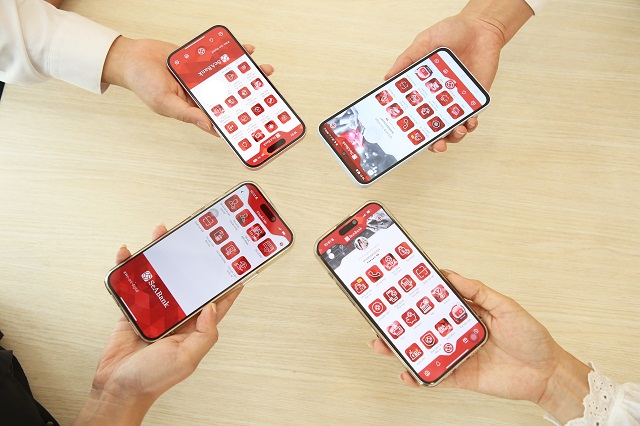
SeABank continuously enhances its SeAMobile app, digitizing banking products and services.
|
SeABank continually upgrades its digital banking platforms, SeAMobile and SeANet, offering over 130 features such as remote eKYC account opening, online card issuance, online savings account management, online loan applications, and online purchases of lottery tickets, flights, event tickets, and insurance. Alongside transaction digitization, SeABank has adopted electronic invoices and documents for counter transactions. These efforts have reduced paper usage and waste, cutting carbon emissions from printing, cash transportation, and customer visits to branches.
In November 2024, SeABank successfully upgraded its core banking software, T24, to the latest R22 version in Vietnam, supporting flexible and secure business needs. This upgrade significantly enhances efficiency, conserves resources, and reduces carbon emissions.
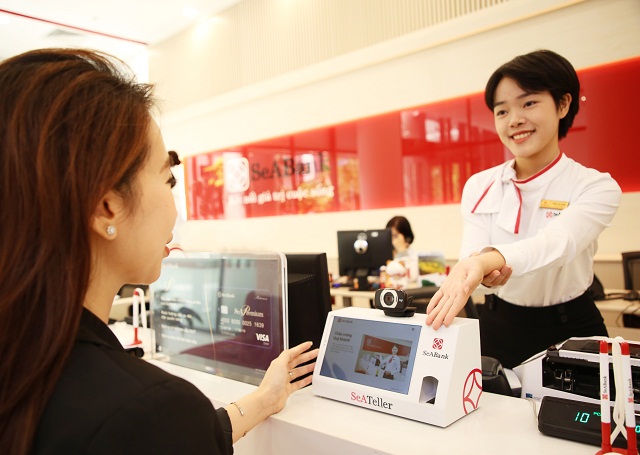
The SeATeller counter support software automates SeABank’s transaction processes.
|
To minimize printing and manual operations, SeABank focuses on process automation through various technologies, including the SeAPayment payment management system, SeAOffice digital workplace, SeAPurchase procurement software, and SeATeller counter support software. Thanks to comprehensive digital transformation, paper consumption at SeABank’s headquarters in 2024 decreased by 1.45% compared to 2023, while energy use and emissions remained stable despite expanding operations and personnel.
Uniting for the Environment
As part of its sustainable development strategy, SeABank is committed to protecting the environment and reducing carbon emissions by raising awareness and encouraging individual actions that collectively make a significant impact.
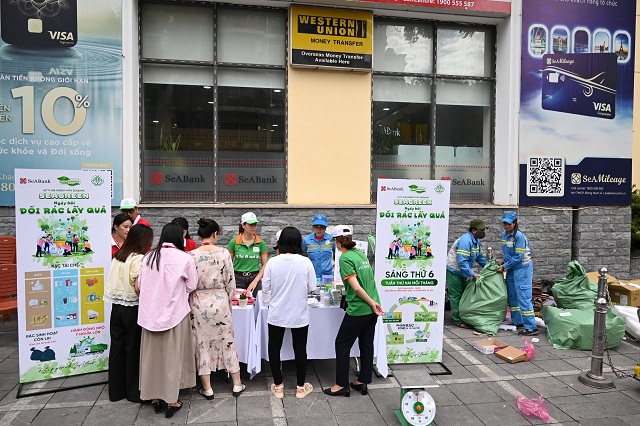 SeABank’s “Trash for Gifts” program promotes green habits.
|
Through the SeAGreen Fund, established in 2019 to support environmental goals, SeABank actively fosters green habits internally and among stakeholders. Notable annual initiatives include the “Green the Road to SeABank” campaign encouraging eco-friendly transportation, the “Ocean Cleanup” beach cleaning program, and the SeAHero activities during “Citizen Week,” featuring trash-for-gifts exchanges and tree/trash bin donations. These efforts have been widely embraced by SeABank employees and have positively impacted the community, contributing to environmental protection and a greener society.
The annual SeABank Run for the Future event raises funds for SeAGreen’s environmental activities. In 2024, the fund partnered with BRG Group and Nhan Dan Newspaper to plant 68,000 trees, valued at 1 billion VND, greening nearly 20 hectares of forest and aiding post-storm recovery in Lao Cai Province. Since 2010, SeABank has planted nearly 360,000 trees in provinces like Ha Tinh, Thanh Hoa, Dak Lak, Lao Cai, and Long An, revitalizing barren land, restoring ecosystems, and supporting local forestry development.
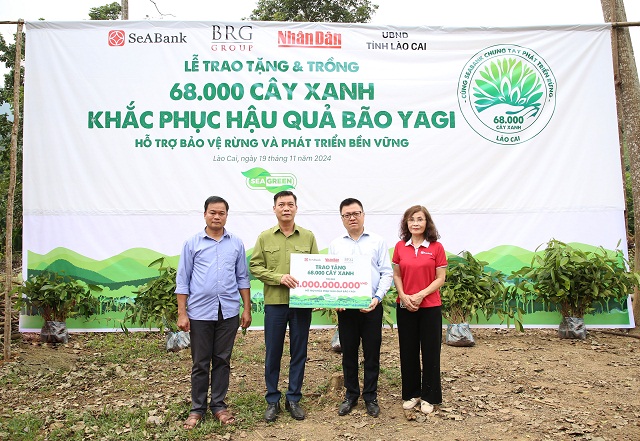 Reforestation is a key focus for SeABank on its net-zero journey.
|
SeABank’s green operational transformation and environmental initiatives have shown early success, with 2024 Scope 1 emissions holding steady at 624 tCO2e and Scope 2 emissions dropping by 11.4% compared to 2023, to 4,853 tCO2e. This underscores SeABank’s strong commitment to carbon reduction, its leadership in green banking, and its meaningful contributions to a sustainable future.
– 11:04 14/11/2025
Da Nang Transitions to Contract Households: VNPAY Supports Digital Invoicing and Payments
On November 12, 2025, VNPAY and the Da Nang Tax Department signed a cooperation agreement to launch the “60-Day Campaign,” aimed at assisting businesses in transitioning from lump-sum tax to self-assessment. This initiative also promotes cashless payments and the adoption of digital solutions in tax management.
Ho Chi Minh City Hosts Autumn Economic Forum 2025: “Green Transformation in the Digital Age”
On the morning of November 14th, the Ho Chi Minh City People’s Committee held a press conference to announce the 2025 Autumn Economic Forum, themed “Green Transformation in the Digital Age.”
Deputy Prime Minister Hồ Đức Phớc Meets with Viettel Group
On the afternoon of November 11th, Deputy Prime Minister Hồ Đức Phớc, Head of the Steering Committee for Enterprise Innovation and Development, held a working session on the implementation of restructuring, innovation, and efficiency enhancement at the Military Industry and Telecoms Group (Viettel).

